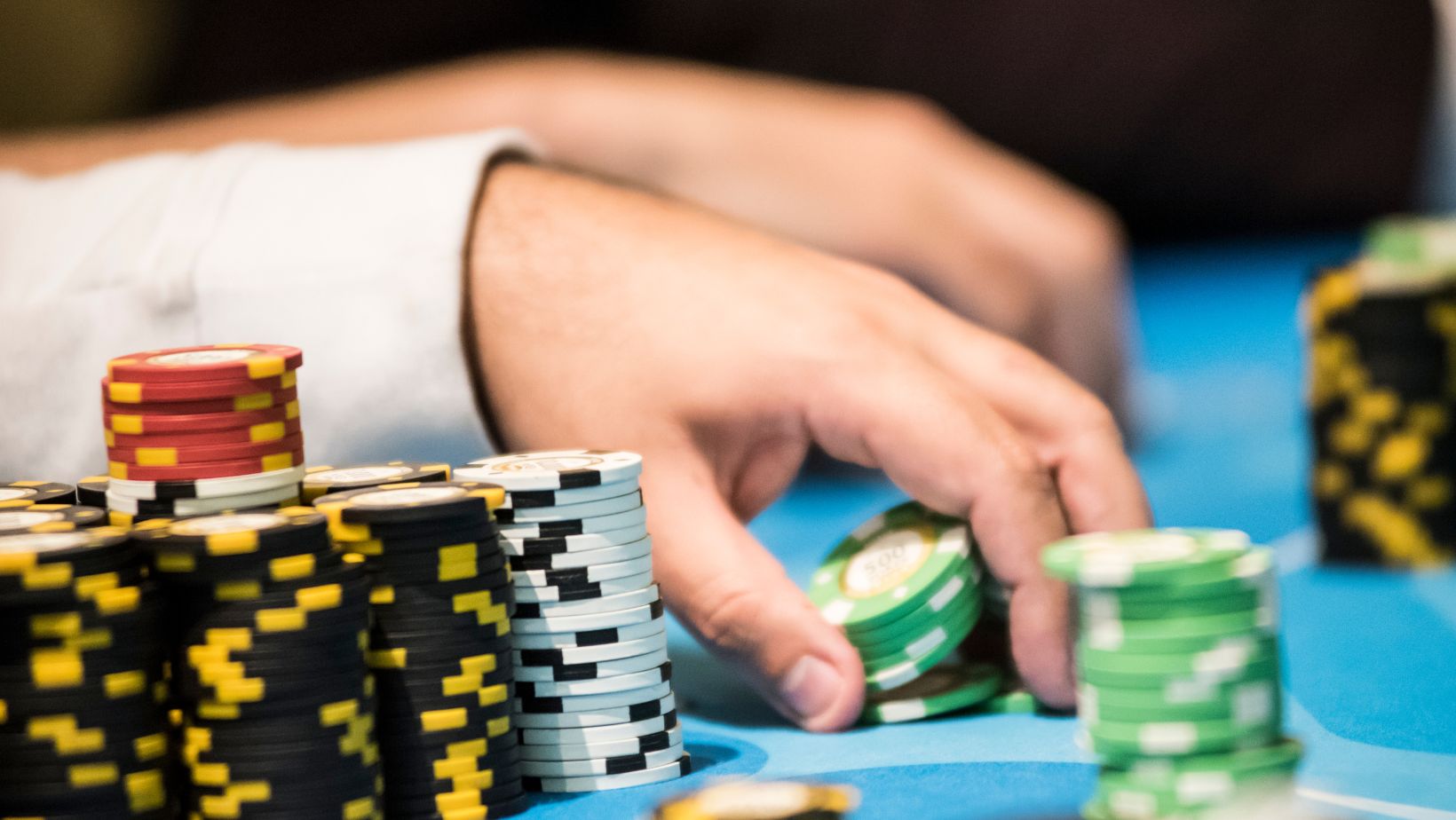
We’ve all seen it in movies: the high-stakes poker game, the silent table, the player making a bold, million-dollar bluff. It looks like pure, adrenaline-fueled gambling. But for professionals, poker isn’t just about the cards you’re dealt; it’s about the decisions you make. This “game” is actually a masterclass in risk assessment, emotional control, and long-term strategy. These very same principles are the bedrock of sound financial planning. By understanding the mindset of a poker pro, you can learn to stop “gambling” with your money and start “investing” in your future.
The biggest misconception about both poker and investing is that they’re all about luck. A novice player goes “all-in” on a bad hand, hoping for a miracle. A seasoned pro knows the math. They understand “pot odds” and “expected value.” They know that while luck rules a single hand, skill and statistics always win in the long run. This same mindset applies to finance. Are you “hoping” a risky stock will skyrocket, or have you calculated your risk-to-reward ratio and diversified your portfolio?
Many people enjoy the entertainment aspect of these games on platforms specifically designed for entertainment. For instance, while the Vulkan Bet casino offers a variety of gaming experiences, the strategic player understands the difference between a game of pure chance and a game of applied skill. The smart financial strategist does the same. They don’t just throw money at the market for a quick thrill; they build a system. They recognize that, like poker, investing isn’t about winning every single “hand.” It’s about having a long-term strategy that ensures you come out ahead over time.
Mastering Risk: The Art of Bankroll Management
One of the most direct parallels between poker and finance is the concept of managing your resources. In poker, this is known as “bankroll management,” and it’s the most critical skill for long-term survival.
Never Play Scared
A professional poker player never sits down at a table with their entire life savings. They have a strict “bankroll” and rules for how much of it they can risk in a single session (often just 1-2%). This allows them to survive “bad beats”—those unlucky hands where they do everything right but still lose. It ensures they live to play another day. In finance, this is called diversification. If your entire net worth is tied up in one investment, a single “bad beat” (a market crash, a company scandal) can wipe you out. A diversified portfolio is your financial bankroll management.
Knowing When to Fold ‘Em
Managing your bankroll isn’t just about how much you risk, but also about when you pull back. This requires cutting through emotional noise. One of the hardest lessons for amateurs is learning to fold. They’ve already put money into the pot, so they feel they must see the hand through, even when the odds are clearly against them. This is the “sunk cost fallacy.” A pro cuts their losses. They treat that money as already gone and make a new, rational decision based on the current situation. In finance, this is the discipline to sell a losing stock that no longer fits your strategy, rather than holding on and “hoping” it will turn around.
Reading the Table: Emotion vs. Logic
Beyond the math, poker is a game of people and psychology. The most formidable opponent isn’t the person across the table; it’s the one in your own head.
Taming the “Tilt”
In poker, “going on tilt” refers to a state of emotional distress—typically anger or frustration after a significant loss—that causes a player to abandon their strategy and make reckless, aggressive plays. It’s a surefire way to lose your entire stack. The financial equivalent is panic selling. When the market dips, the emotional investor “tilts,” selling everything at a loss to “stop the bleeding.” Likewise, “FOMO” (Fear of Missing Out) during a market rally is a form of tilt, causing you to buy high based on hype rather than fundamentals. A pro, like a smart investor, stays level-headed.
Playing the Long Game
If you take away only one lesson from the poker table, let it be this: you are not playing a single hand; you are playing a lifelong game. This mindset requires patience and a focus on process, not just results.

A smart strategy is about consistent, disciplined action over time. The best players don’t become legends overnight. They grind, they learn, and they trust their system, knowing that results will follow.
Here are the key poker strategies you can apply to your finances today:
- Focus on the Decision, Not the Outcome: In a single hand (or a short-term investment), you can do everything right and still lose. That’s variance. Don’t judge your strategy by one-off results. Judge it by the quality and logic of your decision-making process.
- Adapt to a Changing Table: A good player constantly analyzes their opponents and adjusts. A good investor continually analyzes the market and economic conditions, rebalancing their portfolio as needed rather than sticking blindly to an outdated plan.
- Be a Lifelong Learner: The game of poker evolves. The financial markets evolve. The best players are always reading, studying, and analyzing their own mistakes to get better. Your financial education should never stop.
Your Move, Not Your Luck
Ultimately, the greatest lesson poker teaches is one of agency. You cannot control the cards that are dealt, in life or in finance. You can only control how you play them. By shifting your mindset from one of a passive gambler hoping for luck to that of an active player executing a strategy, you transform your entire financial future. You learn to manage your “bankroll,” control your emotions, and make smart, calculated risks. The goal isn’t just to win one big pot; it’s to stay in the game and thrive for a lifetime.


